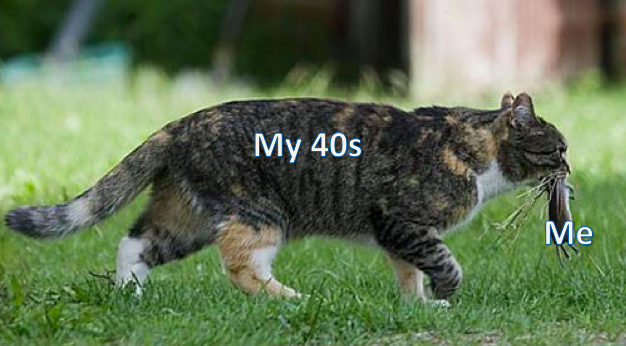The Foreboding Message in Walov’s Revolutionary Song, ‘Never Go Change’
When Michael Kwame Gbordzoe composed the lyrics to our national anthem, ‘God Bless Our Homeland, Ghana’ culminating the first stanza with the refrain:
And help us to resist oppressor’s rule, with all our will and might forevermore
I wonder if he ever imagined that the government elected by the people, for the people, would eventually morph into the oppressor of the people.
There is no doubt that citizens are feeling burdened and hopeless in the country right now, and that is directly as a result of the way the country is being governed. From the executive office of the president, to the religious leaders that sway the emotions of the people, to our municipal mayors and educators, there is a frenzied – almost primal need to subjugate those who find themselves under the authority of anyone in these groups. Ghana has long been considered a hard place to live, but it is only recently that it has become near impossible for the native Ghanaian to thrive in his/her own homeland. Ghana is very kind to the expatriate corps, who navigate the system with ease thanks to the privilege that being paid in dollars/pounds sterling. Ghanaians themselves will go out of their way to show a foreigner that their lives and desires are preferred above their own. This has contributed to the climate and attitude that the native Ghanaian is not worth serving to one’s best. It is an attitude that Ghana’s political elite display with wanton flagrance, insulting the population and then offering half-hearted apologies for political expediency, if any at all.
It is in this bleak climate that Wanlov the Kubolor has penned what many consider the song of the soon coming revolution, ‘Never Go Change’. (The video released was online two days ago). The melody is haunting, the message a warning. The single black and whaite shot of what appears to be a homeless, but hardworking man sweating in his toil is a portent and reflection of life for the average Ghanaian today. I asked Kubolor to talk about his motivation for the arrangement and lyrics of the song.
MOM: Musically, I think it’s a BIT of a departure from your usual subject matter. You usually tackle sexual attitudes and religion (this has earned you the moniker “controversial”)…so why politics now?
Wanlov: Musically it is because I am known for rapping/singing on beats, but I started listening to Sixto Rodriguez over 2 years now and have been learning acoustic guitar from Kyekyeku & Tumi Ansah (M3NSA’s dad). Also dumsor is to blame for me learning guitar…but I think you meant topic-wise. I have always rapped/sung about politics from jump. The first song on my first album “Green Card” was called 50th Dependence and sadly all the lyrics from then are even more relevant now.
MOM: Have you been meaning to do this song for a while, or was it spontaneous considering the political climate Ghana is in now?
Wanlov: I wrote this song a few months ago and debuted it at the Lauryn Hill concert in Accra. The crowd response gave me goosebumps. This is the song of the revolution.
MOM: ‘Never Go Change’ reminds me of Lauryn Hill’s I Find it Hard to Say (Rebel) in which she calls out authority figures for diminishing the value of Black life and oppressed people. She rhetorically asks “Why don’t you rebel”. It’s apropos that you would open for her with this!
Wanlov: [It] was not a conscious decision, but it crossed my mind to ask her to do (record) the song with me. However she was in a bad space because she had just lost her band leader so I shunned. Maybe if the song goes worldwide will ask her to revisit it with me 😉
MOM: You’re one of the few celebrities who has used his voice to address social ills. Do you take on this mandate BECAUSE of your celebrity, or does your fame give you the platform to advocate for causes you would be engaging in regardless?
Wanlov: I do not consider myself a celebrity…just an unpopular popular citizen who knows better and wants that better to be a basic Ghanaian right.
MOM: Do you expect any backlash for releasing this song, particularly for the call to “cut off their heads and splatter blood all over the walls”?
Wanlov: It would surprise me…they do not take the entire country seriously…why would they take me seriously? Besides they kill people every day through their lack of action or abundance of greedy or uninformed decisions.
MOM: Why did you choose to use such a calm, melodic beat instead of something more angry and edgy?
Wanlov: I am past angry…I am now in the calm & calculated zone waiting for my people to arrive.
MOM: The song is a jeremiad about the flagrant display of greed in the face of so much suffering in the nation. Our political and social elite seem to be able to get away with the most heinous crimes with absolute impunity, and because they can, they do. And they will never change. But at the end of the song, you ask the listener: “Like you, you go change?” Do you think we ALL have the potential for corruption at the levels we’re seeing? And if so, is there really any hope for Ghana? It doesn’t seem to matter who we vote into power, the question keeps coming back: “Like you, you go change?” After all, these guys went to our schools and live in our communities. They are a part of us. What keeps this cycle of crap going, in your opinion?
Wanlov: The only reason something radical has not been done yet about corruption is because we are all waiting for our turn to get into a position and exploit it selfishly. We admire successful corruption stories. For example, Woyome is a hero to many. Ministers implicated in corruption are hailed and called honorable.
There is no hope for Ghana to change peacefully in the next 2 generations. My youngest sister who finished high school 2 years ago paid for a school sweater her first year. She and her mates did not get the sweater they paid for in the 3 years they attended that school till today. They were punished if they wore “non-prescribed” sweaters which they needed to because the school is in the mountains and it gets very cold when the sun sets. Upon all the maths and science and whatever they studied, the biggest practical lesson they learnt was behavioral. The teachers/staff they looked up to taught them that when you are in power you are not accountable.
Also our generation did not grow up seeing our parents bribing police by the roadside or tipping the ECG worker to not cut the illegal connection, but our children are growing up seeing this as normal…so imagine the next century…
This cycle keeps going because of the fine balance of colonial legacy, capitalism, religion, shortsightedness, nepotism, patriarchy, pretend patriotism & cultural/spiritual poverty. It has been set up nicely and will keep repeating till the pipes burst in the ever depraved marginalized slums who can’t even afford to follow a religion to sedate them. They will ravage everything shiny and attack anyone above their level of livelihood. Then Ghana will start from its ashes instead of continuing from the tree tops.
Ma bre (Translation: I’m tired)
Watch ‘Never Go Change’ here:
*NB: A day after this interview, news broke that Adams Mahama, the Upper East Chairman for the new Patriotic Party (NPP), had been the victim of an acid attack by two unnamed assailants. His injuries were deemed critical, and sadly cost him his life. He was part of political dispute and the victim of his own party’s in-fighting.
Politicians cannot continue to rely on the goodwill and pseudo spirituality/piety of the Ghanaian public. People are angry. People are frustrated. People are losing their capacity to tap into their compassion and humanity.
No right thinking person would condone these attacks, but ALL right thinking people must ask what sort of desperation would lead a person to resort to this kind of violence and address it at the root. The roots are obvious and exposed, but it is up to us as Ghanaians to admit that they are rotten and tend to them accordingly. It’s not as simple as “because Africans are savages”. To rely on that as an explanation is to willfully dismiss the many obvious and reoccurring wrongs in our society today.





